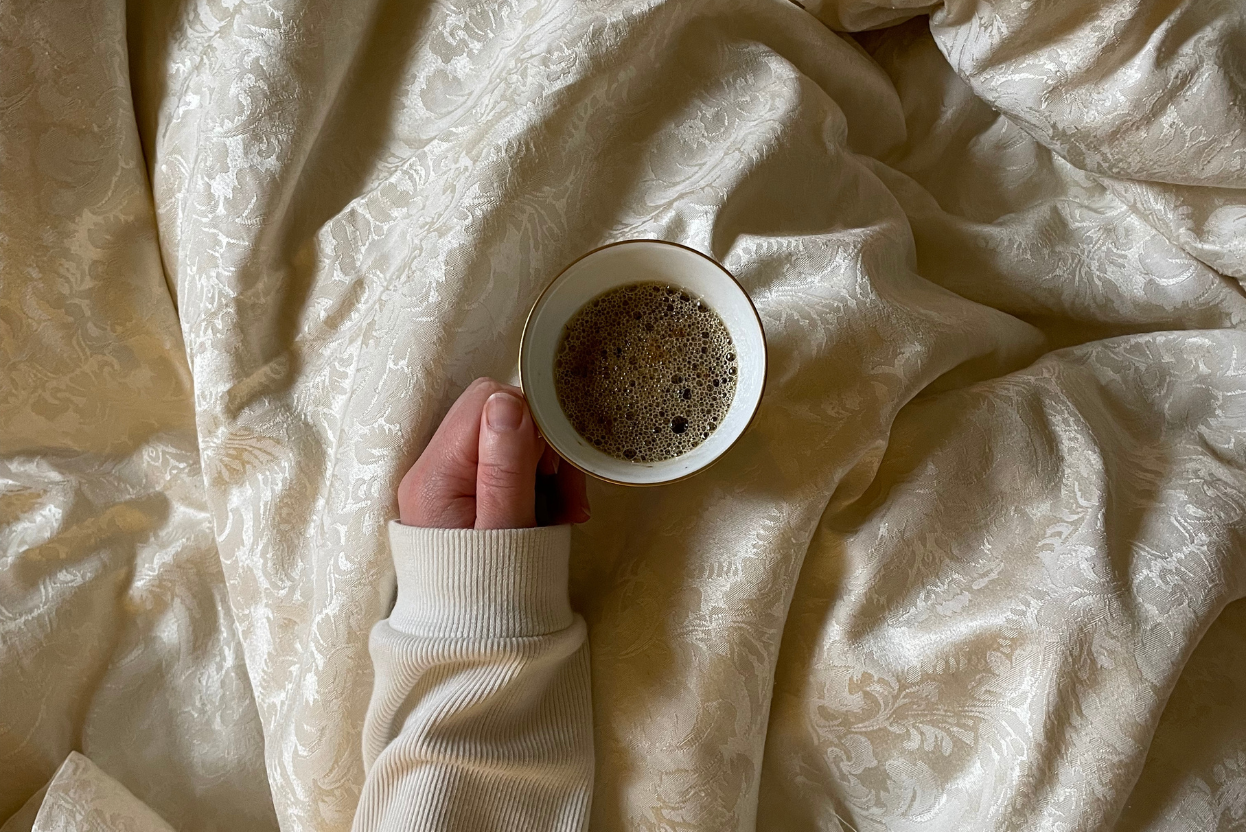I spoke at Monash University in Melbourne yesterday to discuss Oxfam’s latest campaign, ‘What She Makes’. Brush up on the campaign breakdown if you missed it last week, but in a nutshell, women are being paid less than 40 cents an hour to make fast fashion garments for brands like Big W, Rivers, Myers and Target.
‘What She Makes’ is real-life look into the world of the women who work in the garment manufacturing industry, and it is nothing like the behind the scenes glamour you’ve come to see in the studios of Australian labels. The three women in Oxfam’s campaign have children, but they live with their grandparents because it’s safer. The three women in the campaign live in share housing, without beds, without enough food, without sufficient running water. Two of the three women in the campaign video hide their faces because they are so scared of the consequences of speaking out.
It’s 2018, and this is an appalling reality that we’re all responsible for.
They can’t free themselves from this oppression because they earn 40 cents or less an hour for the work they do, and we need a solution. A vast majority of workers in the garment manufacturing industry are women, and they are living in poverty because they earn a pittance.
Thursday’s panel discussion with myself, Economics Lecturer Dr Jaai Parasnis, and Oxfam's Community Campaigner Jess Wheelock, was an eye opener. I went in thinking I’d change the world (as I do most days with my work at The Fashion Advocate because I am a hopeless optimist), and I left understanding that there is an entirely untouched side to this debate that I need to start taking about: politics.
To wrap up the panel’s 90 minutes of serious chat in one sentence is difficult, but here’s what I know right now: there isn’t a simple answer to the issue of fast fashion, and boycotting it will not solve the issue.
Women rely on their income from fast fashion, albeit the few cents it is – it’s what they survive on. If we all woke up tomorrow and decided to stop buying fast fashion, more women would starve. Hundreds of thousands of workers across the world in garment manufacturing would be out of a job; thus, it is not a simple equation. Instead of solving an issue, we would create one, and that’s why it’s important to address the systemic problems with the fashion industry, not just sit in our privileged Western corners and dictate our opinions.
I’ll be interviewing Oxfam's Community Campaigner Jess Wheelock in the coming weeks to share her insights and delve into the governmental issues, legalities and social restrictions with fast fashion and poverty, so please do come back soon to read the rest of the story.
In the meantime, take the first step and educate yourself on the issue. When we’re all aware, we can start making changes.
The Fashion Advocate x




